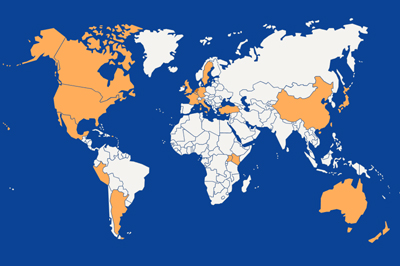Implementation: H. van den Bogert (teacher L.O. Sondervick College and Advanced Rock and Water trainer)
Authors: J. Ykema, analyzes using B. Steunenberg (phd).
Organisation: The Sondervick Collegea in collaboration with Rock and Water Institute NL.
A broad secondary school was created through a merger of the Sondervick College Veldhoven with VSO-LOM de Stolberg in Eindhoven (1995) and subsequently the relocation of the five old locations of the Sondervick College on one large Campus. More than 2,500 students started at this Campus in 2007, which brought with it a concentration of social and emotional problems. Making students more resilient, especially students from the former ‘Special secondary education’, was necessary, so a suitable program was sought. Rock and Water turned out to be a seamless fit; training resilience in the broadest sense of the word; training physical, mental and verbal resilience with a physical approach, alternating with self-reflection and feedback moments.
This is a questionnaire study in which 9 first classes from the Sondervick college participated. A total of 242 students participated (boys and girls), 7 intervention classes (N = 187) were compared with 2 control classes (N = 55). The research data were obtained at two measurement moments: the pre-measurement one week before the start of the Rock and Water lessons (October 2016), and the post-measurement 6 weeks after the last Rock and Water lesson (January 2017).
The results support the effectiveness of the Rock and Water program for boys and girls in the first grade of secondary education. More specifically, the results indicate that Rock and Water has a significant positive effect on feelings of safety and reducing social problems such as bullying. Students dare to stand up for themselves more in the event of bullying, and are more inclined to help the victim and less likely to help the bully. Furthermore, students indicate that they dare to set their own boundaries more and accept those of others more. In addition, a significant improvement is visible in self-confidence and self-control. The latter corresponds to the results of research by De Graaf De Haas, Zaagsma & Wijsen (2015).

